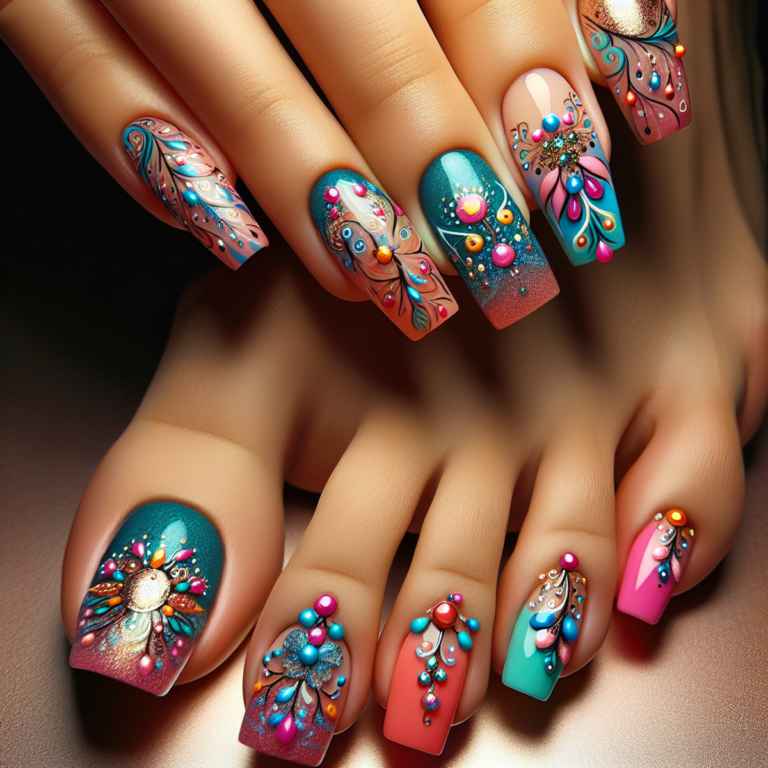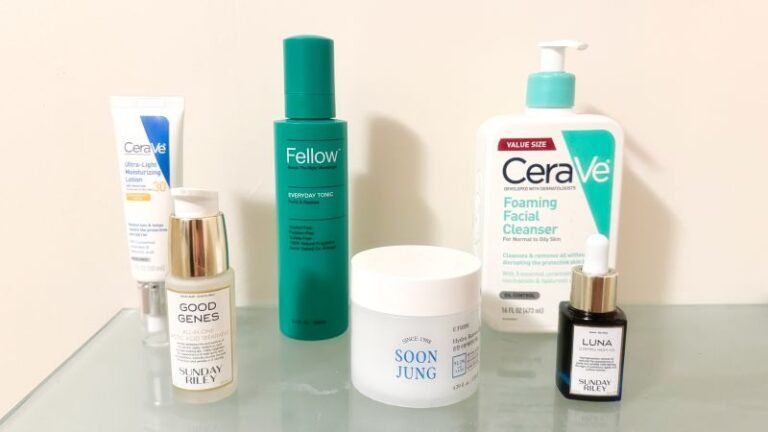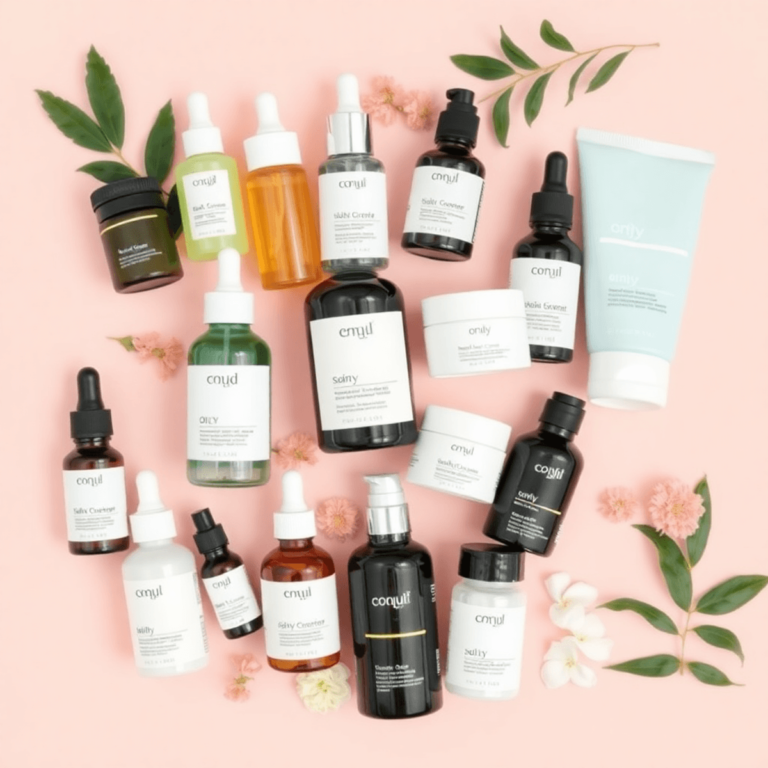10 Ways to Moisturize Your Scalp Using Natural Ingredients

Introduction
Maintaining healthy and beautiful hair starts with a healthy scalp. One important aspect of taking care of your scalp is moisturizing it using natural ingredients. This holistic approach to hair care involves nourishing and hydrating your scalp to support optimal hair growth and prevent common issues like dryness and flakiness.
In this article, we will discuss 10 effective ways to moisturize your scalp naturally. Each method utilizes the power of natural ingredients to deliver moisture and nutrients to your scalp. Whether it’s through protective hairstyles, DIY oil treatments, or nourishing serums, these methods offer gentle and sustainable solutions for scalp care.
By making these natural methods a part of your hair care routine, you can achieve a healthier and more vibrant scalp while reducing your reliance on harsh chemicals and artificial products. So let’s explore the world of natural scalp moisturization and learn how simple organic remedies can improve the health of your hair from the roots!
1. Protective Styles for Healthy Scalp
How Protective Styles Can Help Maintain Moisture Balance on the Scalp
Protective styles are important for keeping your scalp healthy and moisturized. They help retain the natural oils on your scalp and prevent it from drying out too much. This creates a better environment for hair growth.
Examples of Protective Styles
Here are some examples of protective styles that you can try:
- Braids and Twists: These styles not only look great, but they also provide excellent protection for your scalp. By covering it up, they minimize exposure to dry air and other elements that can cause moisture loss.
- Buns and Updos: Keeping your hair in neat buns or updos is another way to shield your scalp from external factors that might dry it out. By keeping it covered, you’re helping to maintain its moisture levels.
- Wigs and Extensions: Wearing wigs or extensions can be a convenient way to protect your natural hair and scalp. They act as a barrier against harsh weather conditions and other potential sources of dryness.
By incorporating these protective styles into your hair care routine, you can significantly improve the health and moisture balance of your scalp.
2. Nourish Your Scalp from Within with Nutrient-Rich Foods
Understanding the Connection Between Diet and Scalp Health
The health of our scalp is closely linked to our overall well-being. A balanced diet plays a crucial role in maintaining a hydrated and nourished scalp. When we provide our bodies with the right nutrients, it reflects in the health of our hair and scalp. Let’s explore some nutrient-rich foods that can promote scalp moisturization and improve the overall condition of our hair.
Top Foods for a Hydrated Scalp
1. Salmon and Other Fatty Fish
One of the best sources of omega-3 fatty acids, salmon, and other fatty fish like mackerel and sardines can do wonders for your scalp health. Omega-3s are essential fats that help keep the scalp moisturized and prevent dryness. They also have anti-inflammatory properties that can soothe any irritation or redness on the scalp. Include these fish in your diet at least twice a week to reap the benefits.
2. Spinach and Leafy Greens
Leafy greens like spinach, kale, and Swiss chard are packed with vitamins A and C, which are vital for a healthy scalp. Vitamin A helps produce sebum, the natural oil that keeps our scalp moisturized. On the other hand, vitamin C promotes collagen production, which strengthens hair follicles and promotes hair growth. Add a handful of leafy greens to your salads or smoothies to nourish your scalp from within.
3. Nuts and Seeds
Nuts and seeds are not only delicious snacks but also excellent sources of nutrients for our scalps. Almonds, walnuts, flaxseeds, and chia seeds are rich in omega-3 fatty acids, vitamin E, zinc, and selenium – all of which contribute to a healthy scalp environment. Vitamin E improves blood circulation in the scalp, while zinc and selenium help maintain a balanced scalp pH. Sprinkle these nutrient powerhouses on your cereals or yogurt for a healthy scalp boost.
By incorporating these nutrient-rich foods into your diet, you can provide your scalp with the nourishment it needs to stay hydrated and healthy. Remember, consistency is key when it comes to reaping the benefits of these foods. Make them a regular part of your meals, and you’ll start noticing improvements in the condition of your scalp and hair.
3. Sealing in Moisture with Anti-Humectants for the Scalp
Anti-humectants are ingredients that help prevent excess moisture loss from the scalp. They create a protective barrier and seal in moisture, keeping the scalp hydrated and preventing dryness. By incorporating natural anti-humectants into your hair care routine, you can effectively combat scalp dryness and promote a healthy moisture balance.
Exploring the Role of Anti-Humectant Ingredients in Preventing Excess Moisture Loss from the Scalp
Anti-humectant ingredients work by forming a barrier on the scalp that prevents the evaporation of moisture. This barrier helps to retain hydration, which is crucial for maintaining a healthy scalp. By sealing in moisture, anti-humectants help to prevent dryness, flakiness, and itchiness.
Natural Anti-Humectants to Try
- Aloe Vera Gel: Aloe vera has long been recognized for its moisturizing properties. It contains enzymes and amino acids that nourish and hydrate the scalp. Aloe vera gel can be applied directly to the scalp, massaged gently, and left on for about 30 minutes before rinsing off. Not only does it help seal in moisture, but it also has soothing effects on an irritated scalp.
- Shea Butter: Shea butter is derived from the nuts of the shea tree and is known for its excellent moisturizing properties. It is rich in fatty acids and vitamins that nourish and hydrate the scalp. Shea butter can be melted down and applied to the scalp as a pre-shampoo treatment or as a leave-in conditioner. It helps to lock in moisture and protect the scalp from dryness.
Using these natural anti-humectants can provide long-lasting moisture retention for your scalp, resulting in healthier hair growth and improved overall scalp health.
Remember to always patch test new ingredients before applying them to your entire scalp. This helps to ensure that you do not have any adverse reactions or sensitivities to the ingredients. Apply a small amount of the anti-humectant on a small patch of skin, such as behind your ear, and wait for at least 24 hours to check for any signs of irritation or allergic reactions.
In addition to using anti-humectants, it is important to maintain a consistent hair care routine that includes regular cleansing with gentle products. Avoid overusing styling tools and heat, as they can contribute to scalp dryness. By following these essential tips, you can effectively seal in moisture and maintain a healthy and hydrated scalp.
Remember, a well-moisturized scalp is essential for overall hair health. Neglecting scalp moisture can lead to issues such as hair breakage and thinning. By embracing natural ingredients and incorporating them into your hair care routine, you can nourish and hydrate your scalp for optimal hair growth and vitality.
4. DIY Oil Treatments to Nourish and Hydrate the Scalp
Regular oil treatments are an effective way to nourish and hydrate your scalp. By using natural ingredients, you can create homemade oil treatments that provide essential nutrients and moisture to your scalp, promoting overall scalp health and preventing dryness. Here are some benefits of incorporating oil treatments into your scalp care routine:
- Moisturization: Oil treatments help to lock in moisture and prevent water loss from the scalp, keeping it hydrated and preventing dryness.
- Nourishment: Oils contain essential fatty acids, vitamins, and minerals that nourish the scalp and promote healthy hair growth.
- Stimulating blood circulation: Massaging the oil into your scalp increases blood flow, which helps deliver nutrients to the hair follicles and promotes a healthy scalp environment.
Essential Oils for Scalp Health
When it comes to choosing oils for your DIY treatments, there are a few key essential oils that are known for their scalp health benefits:
- Rosemary Oil: Rosemary oil has been used for centuries for its hair growth properties. It stimulates blood circulation in the scalp, promotes hair growth, and helps reduce dandruff and itchiness. Mix a few drops of rosemary oil with a carrier oil like jojoba or coconut oil, and massage it into your scalp. Leave it on for at least 30 minutes before shampooing.
- Tea Tree Oil: Tea tree oil is well-known for its antimicrobial properties, making it effective in combating fungal infections on the scalp that can lead to dandruff or itchiness. It also helps balance the scalp’s natural oil production. Add a few drops of tea tree oil to a carrier oil like olive or almond oil, and apply it to your scalp. Leave it on overnight for best results.
Carrier Oils for Added Moisture
In addition to these essential oils, you can also incorporate carrier oils like coconut oil, almond oil, or castor oil into your DIY oil treatments. These oils provide additional moisture and nourishment to the scalp.
How to Make Your Own Oil Treatment
To create your own oil treatment, simply mix a few drops of the essential oil with a carrier oil of your choice. The ratio can vary depending on your hair type and preference. Massage the mixture into your scalp for a few minutes, ensuring that it is evenly distributed. Leave it on for at least 30 minutes or overnight before washing it off with a gentle shampoo.
Note: Remember to always perform a patch test before using any new oil or ingredient on your scalp to check for any potential allergic reactions or sensitivities.
Benefits of Regular Oil Treatments
By incorporating regular oil treatments into your scalp care routine, you can effectively nourish and hydrate your scalp, promoting healthy hair growth and preventing dryness. Experiment with different oils and find the combination that works best for you. Your scalp will thank you!
Pro Tip: For an added boost of moisture, you can warm up the oil slightly before applying it to your scalp. This will help the oils penetrate more deeply into the scalp and provide extra hydration.
5. Pampering Your Scalp with Moisturizing Hair Masks and Serums
Hair masks and serums are excellent ways to provide deep hydration and nourishment to your scalp. These treatments can be made at home using natural ingredients, making them cost-effective and customizable to your specific needs. Here are two DIY hair masks that can help moisturize your scalp:
5.1 DIY Hair Masks for Optimal Scalp Moisturization
- Avocado and Banana Mask: Avocado is rich in healthy fats that can help hydrate and nourish the scalp, while bananas contain vitamins and minerals that promote overall hair health. To make this mask, mash one ripe avocado and one ripe banana together until you achieve a smooth paste. Apply the mixture to your scalp, focusing on the roots of your hair. Leave it on for 30 minutes, then rinse thoroughly with lukewarm water.
- Coconut Milk and Honey Mask: Coconut milk is known for its moisturizing properties, while honey acts as a humectant, helping to retain moisture in the scalp. To create this mask, mix equal parts coconut milk and honey in a bowl. Apply the mixture to your scalp, ensuring complete coverage. Leave it on for 20-30 minutes before rinsing it off with a gentle shampoo.
Both of these hair masks can be used once or twice a week to maintain optimal moisture levels on your scalp. Feel free to experiment with additional ingredients such as olive oil, yogurt, or essential oils like lavender or rosemary for added benefits.
The Benefits of Using Nourishing Serums for Scalp Health
In addition to hair masks, using nourishing serums can provide an extra boost of moisture to your scalp. These serums are typically lightweight and easily absorbed, allowing them to penetrate deeply into the scalp for maximum effectiveness. Here are a few homemade serums you can try:
- Castor Oil and Aloe Blend: Mix equal parts castor oil and aloe vera gel in a small bottle. Massage a few drops of the serum into your scalp, focusing on areas that need extra hydration. Leave it on overnight and rinse it off in the morning.
- Rosewater and Glycerin Serum: Combine equal parts rosewater and glycerin in a spray bottle. Shake well to mix the ingredients thoroughly. Spray the serum onto your scalp and gently massage it in. Leave it on for a few hours or overnight before rinsing it out.
These serums can be used daily or as needed to provide ongoing moisture to your scalp. They are particularly beneficial for dry, itchy scalps or those experiencing dandruff or flakiness.
By incorporating hair masks and serums into your scalp care routine, you can effectively moisturize your scalp using natural ingredients. These treatments not only hydrate your scalp but also promote overall hair health, leaving you with luscious locks that are nourished from root to tip.
Remember, consistency is key when it comes to scalp moisturization. Make these treatments a regular part of your hair care routine for best results.
5.2 The Benefits of Using Nourishing Serums for Scalp Health
Understanding the Role of Hair Masks in Providing Intense Hydration to the Scalp and Hair Fibers
Hair masks are a popular way to deeply nourish and moisturize the hair and scalp. These treatments are typically formulated with natural ingredients that are known for their hydrating properties. By using a hair mask regularly, you can provide your scalp with the hydration it needs to maintain its health and vitality.
Homemade Serums to Boost Scalp Moisture Levels
In addition to hair masks, serums can also be highly beneficial for maintaining a healthy scalp. Serums are lightweight, oil-based products that are designed to penetrate deeply into the scalp and hair fibers. They can provide intense hydration and nourishment, leaving your scalp feeling moisturized and refreshed.
When creating homemade serums, you have the freedom to choose natural ingredients that work best for your scalp. Here are a few examples of nourishing serums you can make at home:
- Castor Oil and Aloe Vera Serum: Mix equal parts castor oil and aloe vera gel in a small bowl. Massage the serum into your scalp, focusing on any dry or irritated areas. Leave it on for at least 30 minutes before rinsing it out.
- Argan Oil and Rosemary Serum: Combine a few drops of argan oil with a few drops of rosemary essential oil in a dropper bottle. Apply the serum directly to your scalp, gently massaging it in. Leave it on overnight for maximum benefits.
- Coconut Oil and Tea Tree Oil Serum: Mix melted coconut oil with a few drops of tea tree essential oil in a small container. Apply the serum to your scalp, focusing on areas prone to dryness or flakiness. Leave it on for at least an hour before washing it out.
By incorporating these homemade serums into your scalp care routine, you can provide your scalp with the nourishment it needs to stay hydrated and healthy. These serums work by deeply moisturizing the scalp and hair fibers, similar to how hyaluronic acid provides intense hydration to the skin.
Remember, everyone’s scalp is different, so feel free to experiment with different ingredients and proportions to find what works best for you. Always patch test any new ingredients on a small area of your skin before applying them to your scalp to ensure that you don’t have any adverse reactions.
With the right serums, regular use, and proper hair care practices such as using leave-in conditioners, you can give your scalp the moisture it craves and promote overall hair health.
6. Other Natural Remedies to Combat Dry Scalp Issues
When it comes to combating dry scalp issues, there are several natural remedies that can provide relief and help restore moisture balance. While we have already discussed some natural ingredients in previous sections, here are a few more effective remedies worth mentioning:
- Coconut Oil: Coconut oil has long been used as a moisturizer for the hair and scalp. Its rich fatty acids help nourish and hydrate the scalp, reducing dryness and flakiness. Massage warm coconut oil onto your scalp and leave it on for at least 30 minutes before rinsing off.
- Tea Tree Oil: Tea tree oil is known for its antimicrobial properties and can be beneficial in treating dry scalp caused by fungal infections or dandruff. Mix a few drops of tea tree oil with a carrier oil like jojoba or olive oil, and massage it into your scalp. Leave it on for about 30 minutes before shampooing.
- Aloe Vera: Aloe vera has soothing properties that can help alleviate dryness and itchiness on the scalp. Apply fresh aloe vera gel directly to your scalp and leave it on for 20-30 minutes before rinsing off.
- Apple Cider Vinegar: Apple cider vinegar helps balance the pH level of the scalp, which can reduce dryness and irritation. Mix equal parts of apple cider vinegar and water, and use it as a final rinse after shampooing. Leave it on for a few minutes before rinsing with water.
These natural remedies can be highly effective in providing relief from dry scalp issues. However, it’s important to note that everyone’s skin is different, so what works for one person may not work for another. It’s always a good idea to patch test any new ingredients or products on a small area of skin before applying them to your entire scalp to ensure you don’t have any adverse reactions.
7. Essential Tips for Maintaining a Healthy and Hydrated Scalp
Caring for your scalp is crucial to maintaining a healthy and hydrated head of hair. By following these essential tips, you can ensure that your scalp remains in optimal condition:
- Regular Cleansing with Gentle Products: Regularly washing your hair and scalp is essential for maintaining cleanliness and removing any buildup that may lead to dryness or irritation. However, it is important to use gentle, sulfate-free shampoos that won’t strip away the natural oils from your scalp. Look for products specifically formulated for dry or sensitive scalps, as they are designed to provide moisture while cleansing.
- Avoiding Overuse of Styling Tools and Heat: Excessive heat styling and the use of styling tools can cause damage to both your hair and scalp. Heat can strip away moisture from your scalp, leaving it dry and prone to irritation. Limit the use of hot styling tools such as flat irons, curling irons, and blow dryers, and always use a heat protectant spray before applying heat to your hair.
- Protecting Your Scalp from the Sun: Just like your skin, your scalp can be affected by harmful UV rays from the sun. To protect your scalp from sunburn and potential damage, consider wearing a hat or using a sunscreen specifically formulated for the scalp when spending extended periods outdoors.
By incorporating these essential tips into your scalp care routine, you can maintain a healthy and hydrated scalp. Remember to listen to your scalp’s needs and adjust your routine accordingly. With consistent care, you’ll be well on your way to a healthier head of hair.
Note: If you have specific concerns about your scalp health or any underlying conditions, it’s always best to consult with a dermatologist or trichologist for personalized advice.
Taking Precautions: Patch Testing and Ingredient Safety
When it comes to scalp care, it’s essential to take precautions to ensure that the ingredients you use are safe and suitable for your skin. Patch testing is a crucial step in this process as it helps identify any potential sensitivities or adverse reactions before applying a product to your entire scalp. Here are some important points to keep in mind when it comes to patch testing and ingredient safety:
1. Importance of Patch Testing
Patch testing involves applying a small amount of a product or ingredient to a small area of skin, typically behind the ear or on the inner forearm, and monitoring for any negative reactions over a 24-48 hour period. This test helps determine if you have any allergies or sensitivities to specific ingredients, reducing the risk of an adverse reaction when applied to the scalp.
2. Safety Precautions
It’s crucial to follow these safety precautions when conducting a patch test:
- Cleanse the area with mild soap and water before applying the test product.
- Apply a small amount of the product onto the clean patch test area.
- Cover the area with a bandage or adhesive patch to prevent accidental contact.
- Avoid washing or rubbing the area during the testing period.
- Observe for any signs of redness, itching, swelling, or irritation during and after the testing period.
3. Wait for Results
After applying the test product, it’s important to wait for at least 24-48 hours to observe any reactions. If you experience any discomfort, redness, itching, or other adverse reactions during this time, it’s best to avoid using that particular ingredient or product on your scalp.
4. Ingredient Safety
When selecting products for your scalp care routine, look for ingredients that are known for their safety and compatibility with sensitive skin. Some key ingredients to consider include:
- Aloe vera: Known for its soothing and hydrating properties.
- Coconut oil: A natural moisturizer that can help nourish the scalp.
- Tea tree oil: Has antimicrobial properties and can help address scalp issues.
- Apple cider vinegar: Helps balance the pH of the scalp and reduce dandruff.
Remember, patch testing is an essential step in ensuring your scalp’s health and safety. By taking these precautions, you can minimize the risk of adverse reactions and enjoy a healthy and hydrated scalp.
9. The Impact of Dry Scalp on Overall Hair Health
Untreated dry scalp can lead to hair breakage and thinning. When the scalp lacks proper moisture, it can become dry, flaky, and itchy, which may result in hair becoming brittle and prone to breakage. Additionally, a dehydrated scalp can disrupt the hair’s natural growth cycle, potentially leading to hair thinning and loss over time.
Furthermore, dry scalp can also cause discomfort and irritation, leading to excessive scratching or rubbing of the scalp. This can further damage the hair follicles and exacerbate hair loss issues.
Inadequate scalp moisturization may also contribute to an imbalance in sebum production. When the scalp is dry, it may signal the body to produce more oil, leading to an oily scalp and potentially clogged pores. This imbalance can negatively impact overall hair health by making it more prone to product buildup, dandruff, and other scalp issues.
Overall, maintaining optimal scalp moisture is crucial for preserving the strength and vitality of your hair. By addressing dry scalp concerns and ensuring adequate hydration, you can promote healthier hair growth and minimize the risk of damage and thinning.
10. Embracing a Holistic Approach to Scalp and Hair Care
Encouragement to Try Out the 10 Natural Methods Discussed for a Healthy and Hydrated Scalp Journey
Taking a holistic approach to scalp and hair care can significantly improve the overall health and appearance of your hair. By embracing natural methods, you can effectively moisturize your scalp while promoting healthy hair growth. Here are some key points to consider:
- Balanced Lifestyle: Maintain a well-rounded lifestyle, including a balanced diet, proper hydration, and stress management, as these factors can directly impact scalp health.
- Consistency: Be consistent in using natural ingredients and methods for moisturizing the scalp. Regular practice and patience are essential for achieving noticeable results.
- Personalized Care: Understand the importance of personalized care based on individual scalp conditions and concerns. Try different natural remedies to find the most effective solutions for your specific needs.
By adopting a holistic approach that incorporates these key elements, you can experience the benefits of healthy and hydrated scalp naturally, promoting overall hair wellness in the process.










